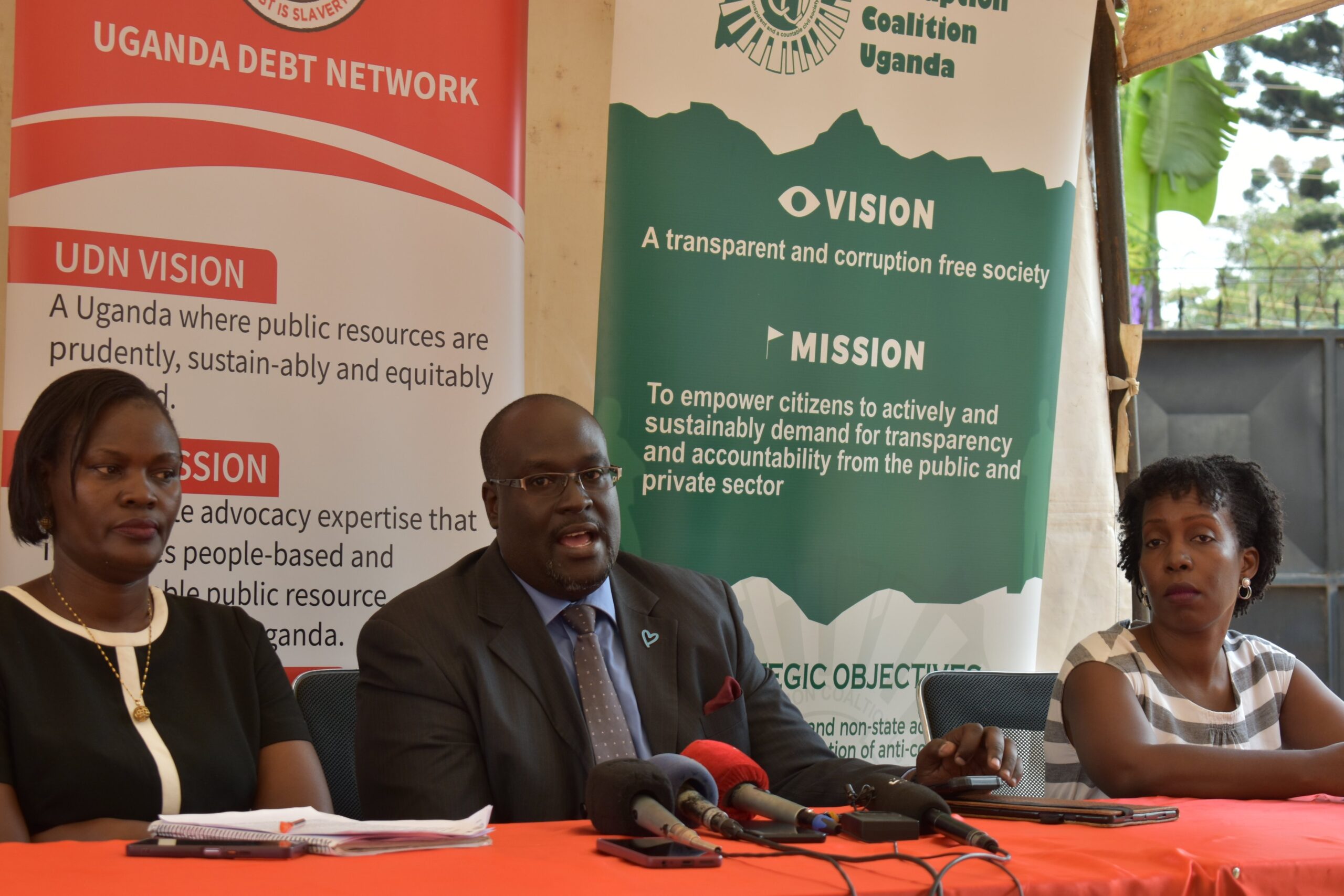Uganda’s rising debt threatens investment in children, CSOs warn

Damon Kawamara (center), Executive Director Dwelling Places during the presser
Ugandan civil society organizations (CSOs) have sounded the alarm over what they call a looming crisis for children, as government debt and fiscal pressures continue to consume resources that should be invested in education, health, and social protection.
In a press briefing following regional budget conferences in Gulu, Mbarara, Mbale, Arua, Masaka, and Kampala, the Uganda Debt Network (UDN) and partners under the Budget Transparency Initiative commended government for recent reforms such as increased capitation grants for Universal Primary and Secondary Education, adoption of a school feeding policy, and efforts to curb child labor.
“These milestones show government’s recognition of the challenges children face in staying in school. But numbers don’t lie, we are still under-investing in children,” the statement read.
According to UDN, Uganda’s total public debt reached UGX 116.2 trillion (USD 32.3 billion) by June 2025, equivalent to 51.3% of GDP. This was a 26% increase from the previous year, largely driven by state-owned enterprise liabilities, loan guarantees, and domestic arrears. The result, CSOs warned, has been squeezed local government budgets, delayed disbursements, stalled projects, and chronic underfunding of child-focused programs.
Key concerns raised include:
- Medical services at risk: Only UGX 1.8 billion was allocated for medical equipment maintenance in FY2025/26, against a need of UGX 20 billion. Hospitals now face breakdowns of critical machines such as CT scanners, MRI scanners, and oxygen plants, endangering patient safety.
- Education gaps: Staffing levels in schools remain dangerously low, with only 10% of seed secondary schools fully staffed. In some primary schools, teacher-to-pupil ratios exceed 1:200, well above the recommended 1:53.
- Weak accountability: Several schools have failed to prepare annual financial statements, undermining transparency and oversight of resources.
- Justice underfunded: Despite rising cases of child neglect and abuse, child protection units within police and judiciary remain underfunded, with some departments receiving as little as 0.33% of budget allocations.
The organizations are urging government to adopt a sustainable debt management strategy, reprioritize financing for education and human capital, and allocate at least 15–20% of the national budget to education, in line with global benchmarks.
“The most pro-poor intervention Uganda can make is to invest directly in its children,” UDN concluded.




